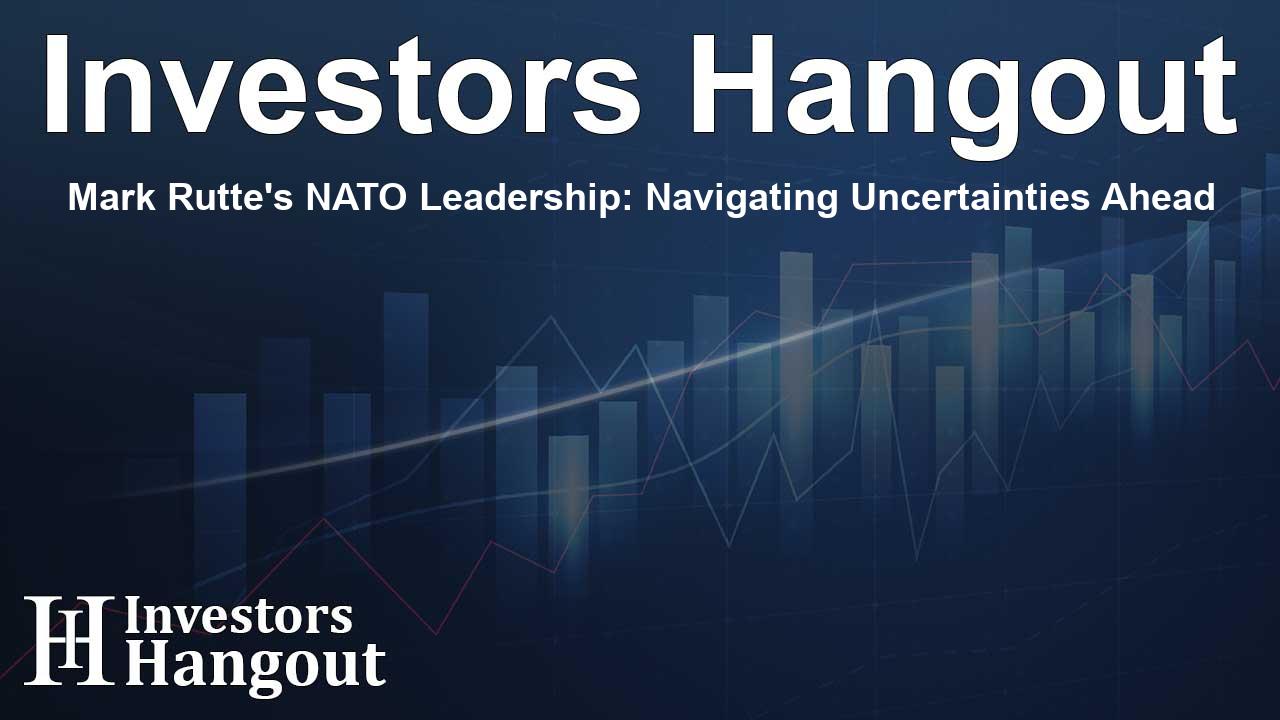Mark Rutte's NATO Leadership: Navigating Uncertainties Ahead

Mark Rutte's New Role as NATO Secretary General
Former Dutch Prime Minister Mark Rutte has taken the reins as the new NATO Secretary General at a critical juncture for the Western military alliance. As the war in Ukraine continues to evolve and a crucial U.S. presidential election approaches, Rutte faces significant challenges and responsibilities.
Priorities for NATO Under Rutte's Leadership
At his induction ceremony in Brussels, Rutte officially replaces Jens Stoltenberg, who held the position during a turbulent era defined largely by Russia's aggressive actions in Ukraine. His predecessors laid the groundwork that Rutte must now build upon. Expectations are high that he will continue to prioritize support for Ukraine, advocate for increased defense spending among NATO members, and ensure the United States remains an active participant in European security matters.
The Ongoing Conflict in Ukraine
The situation in Ukraine remains uncertain, characterized by a protracted war of attrition. Rutte must navigate not only the dynamics of the conflict but also the changing political landscape in the U.S. where NATO skepticism has gained traction, especially with figures like Donald Trump possibly returning to power.
The Historical Context of NATO
NATO, established in 1949, was originally founded to defend against threats posed by the Soviet Union. The current war in Ukraine has thrust NATO back to the forefront of international politics as Sweden and Finland recently joined the alliance, abandoning their historical stance of non-alignment. Under NATO's collective defense clause, an attack on one member state is regarded as an attack on all.
Reinvigorating NATO's Eastern Defense
In response to the Ukraine crisis, NATO has escalated its military presence in Eastern Europe and significantly revised its defense strategies, taking the threat from Moscow more seriously than ever since the Cold War ended. This shift underscores the alliance's commitment to maintaining stability and deterrence in the region.
Rutte's Approach to Leadership
As Rutte steps into his new role, he must encourage member nations to contribute troops, military equipment, and funding to support NATO's revamped defense strategies fully. The United States, though the leading power in NATO, operates on a consensus model, making it crucial for Rutte to foster cooperation and resolve disagreements among member states.
Navigating Diplomatic Relationships
Rutte's extensive experience in coalition governance positions him well for this challenging task. However, he may need to temper his direct criticisms of other European nations and reconsider his stance on fiscal austerity—a viewpoint that has drawn frustration from Eastern European members who advocate for collective EU borrowing to finance defense initiatives.
Conclusion
Mark Rutte's leadership marks an essential phase for NATO amid pressing global challenges. The alliance stands at a crossroad—balancing ongoing military commitments in Ukraine with internal member dynamics and external threats. As he embarks on this journey, the world will be watching closely how Rutte navigates these complex issues to ensure NATO remains a unified force.
Frequently Asked Questions
What is Mark Rutte's new position?
Mark Rutte has become the new NATO Secretary General.
What are Rutte's main priorities as NATO's Secretary General?
His main priorities include support for Ukraine, encouraging increased defense spending among NATO members, and reinforcing U.S. involvement in European security.
How has the Ukraine conflict impacted NATO's strategy?
The ongoing war has led NATO to rethink its defense strategies and military presence, particularly in Eastern Europe.
What historical significance does NATO hold?
NATO was established in 1949 to defend against Soviet threats, and it has played a critical role in maintaining peace and collective defense since.
Why is U.S. involvement in NATO significant?
The U.S. serves as NATO's predominant power and plays a crucial role in alliance decisions, highlighting the importance of consensus among member nations.
About Investors Hangout
Investors Hangout is a leading online stock forum for financial discussion and learning, offering a wide range of free tools and resources. It draws in traders of all levels, who exchange market knowledge, investigate trading tactics, and keep an eye on industry developments in real time. Featuring financial articles, stock message boards, quotes, charts, company profiles, and live news updates. Through cooperative learning and a wealth of informational resources, it helps users from novices creating their first portfolios to experts honing their techniques. Join Investors Hangout today: https://investorshangout.com/
Disclaimer: The content of this article is solely for general informational purposes only; it does not represent legal, financial, or investment advice. Investors Hangout does not offer financial advice; the author is not a licensed financial advisor. Consult a qualified advisor before making any financial or investment decisions based on this article. The author's interpretation of publicly available data shapes the opinions presented here; as a result, they should not be taken as advice to purchase, sell, or hold any securities mentioned or any other investments. The author does not guarantee the accuracy, completeness, or timeliness of any material, providing it "as is." Information and market conditions may change; past performance is not indicative of future outcomes. If any of the material offered here is inaccurate, please contact us for corrections.